Facing Sudan is a american film released in USA on 31 march 2007
Facing Sudan (2007)
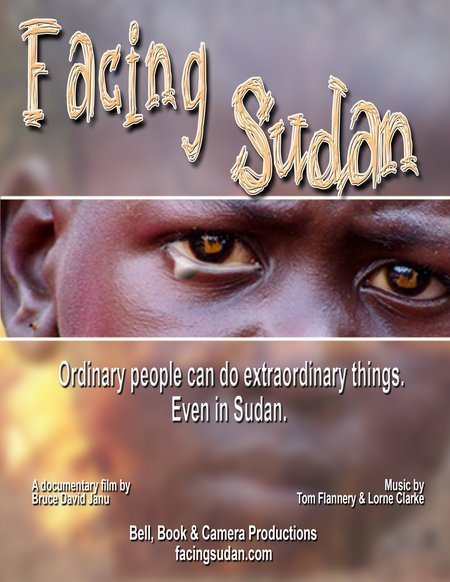
If you like this film, let us know!
- Infos
- Casting
- Technical infos
- Photos
- Videos
- Film quotes
- Characters
- Music
- Awards
Released in USA 31 march 2007
Length 1h30
OriginUSA
Themes Films set in Africa, Documentary films about law, Documentary films about war, Documentary films about historical events, Documentaire sur une personnalité, Documentary films about politics, Political films
Rating67%










Facing Sudan is a documentary film released in 2007. It chronicles the situation in Sudan from independence in 1956, through civil war and the current crisis in Darfur. The narrative of Sudan is told through the eyes of activists from various segments of American society. Brian Burns—a young custodian who traveled to South Sudan in order to effect change there—supplies the arc in the film, and links the various stories together.
The tagline of the film is "Ordinary people can do extraordinary things. Even in Sudan."
The film premiered in March 2007 at the Longbaugh Film Festival in Portland, Oregon. It subsequently screened at fourteen film festivals and won "Best Documentary" awards at the Landlocked Film Festival and the Illinois International Film Festival.
The film was produced, directed and edited by Bruce David Janu. The soundtrack was composed by Tom Flannery and Lorne Clarke.
The film was released on DVD January 8, 2008.
A follow-up to Facing Sudan was completed in July, 2008. This short documentary is entitled Crayons and Paper, tells the story of Dr. Jerry Ehrlich, a pediatrician who has administered to children in conflicts zones across the world. The film exhibits drawings from children in Sri Lanka and Darfur. Like Facing Sudan, the documentary features an original soundtrack by Flannery and Clarke.
Comments
Leave comment :
Suggestions of similar film to Facing Sudan
There are 11210 films with the same themes (including 83 films with the same 7 themes than Facing Sudan), to have finally 70 suggestions of similar films.If you liked Facing Sudan, you will probably like those similar films :
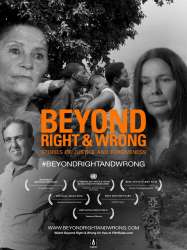 , 1h20
, 1h20Directed by Roger Spottiswoode
Origin USA
Genres Documentary
Themes Films set in Africa, Films about racism, Films about religion, Films about terrorism, Documentary films about racism, Documentary films about law, Documentary films about war, Documentary films about historical events, Documentaire sur une personnalité, Documentary films about politics, Documentary films about religion, Political films, Films about Jews and Judaism
Rating71%






The Making of a Martyr (2006)
Origin Canada
Genres Documentary
Themes Films set in Africa, Films about religion, Films about terrorism, Documentary films about law, Documentary films about war, Documentary films about historical events, Documentaire sur une personnalité, Documentary films about politics, Documentary films about religion, Documentary films about terrorism, Political films, Films about Jews and Judaism, Films about Islam
Rating69%





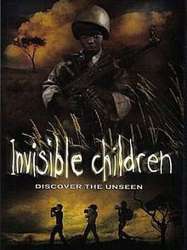
Invisible Children (2006)
, 55minutesDirected by Jason Russell
Origin USA
Genres Documentary
Themes Films set in Africa, Films about children, Documentary films about law, Documentary films about war, Documentary films about historical events, Documentaire sur une personnalité, Documentary films about politics, Documentary films about child abuse, Political films, Films about child abuse
Actors Jason Russell
Rating77%





In the spring of 2003, Jason Russell, Bobby Bailey, and Laren Poole traveled to Africa to document the War in Darfur. Instead, they changed their focus to the conflict in northern Uganda, Africa's second longest-running conflict after the Eritrean War of Independence. The documentary depicts the abduction of children who are used as child soldiers by Joseph Kony and his Lord's Resistance Army (LRA). This film centers around a group of Ugandan children who walk miles every night to places of refuge in order to avoid abduction by the LRA.
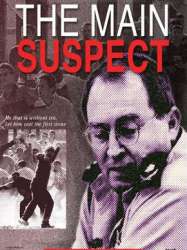
The Main Suspect (2003)
, 1hDirected by Yaky Yosha
Genres Documentary
Themes Films set in Africa, Films about religion, Documentary films about law, Documentary films about war, Documentary films about historical events, Documentaire sur une personnalité, Documentary films about politics, Documentary films about religion, Political films, Films about Jews and Judaism
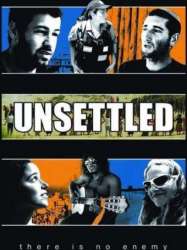
Unsettled (2007)
, 1h20Genres Documentary
Themes Films set in Africa, Films about religion, Documentary films about law, Documentary films about war, Documentary films about historical events, Documentaire sur une personnalité, Documentary films about politics, Documentary films about religion, Political films, Films about Jews and Judaism
Rating73%





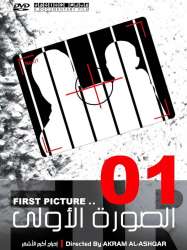
First Picture (2007)
, 27minutesGenres Documentary
Themes Films set in Africa, Films about religion, Documentary films about law, Documentary films about war, Documentary films about historical events, Documentaire sur une personnalité, Documentary films about politics, Documentary films about religion, Political films, Films about Jews and Judaism
Rating75%






The Colour of Olives (2006)
, 1h37Directed by Carolina Rivas
Origin Israel
Genres Documentary
Themes Films set in Africa, Films about families, Films about religion, Documentary films about law, Documentary films about war, Documentary films about historical events, Documentaire sur une personnalité, Documentary films about politics, Documentary films about religion, Political films, Films about Jews and Judaism
Rating70%






Une Affaire de nègres (2009)
, 1h30Directed by Osvalde Lewat
Genres Documentary
Themes Films set in Africa, Documentary films about law, Documentary films about war, Documentary films about historical events, Documentaire sur une personnalité, Documentary films about politics, Political films
March 20, 2000, a decree by the President of the Republic of Cameroon set up an Operational Command Unit to tackle rampant banditry in the Douala region. The Unit introduced what amounted to round-ups: in one year, 1600 people disappeared or were killed. One year later, nine young men disappeared. The matter was submitted to the UN High Commissioner for Human Rights. The accused were found guilty of "failure to follow orders" and released but legal proceedings have not come to an end. The victims' families have to live between the desire for justice and the pressure for the crimes to be wiped out forever from the collective memory.

Fascist Legacy (1989)
Origin United-kingdom
Genres Documentary
Themes Films set in Africa, Documentary films about law, Documentary films about war, Documentary films about historical events, Documentaire sur une personnalité, Documentary films about politics, Political films
Actors Michael Bryant
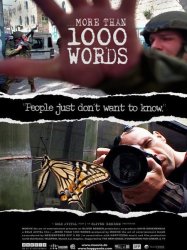
...More Than 1000 Words (2006)
, 1h18Origin Israel
Genres Documentary
Themes Films set in Africa, Films about religion, Documentary films about the visual arts, Documentary films about law, Documentary films about war, Documentary films about historical events, Documentaire sur une personnalité, Documentary films about politics, Documentary films about religion, Political films, Films about Jews and Judaism
Actors Galit Gutmann
Rating74%





 Connection
Connection